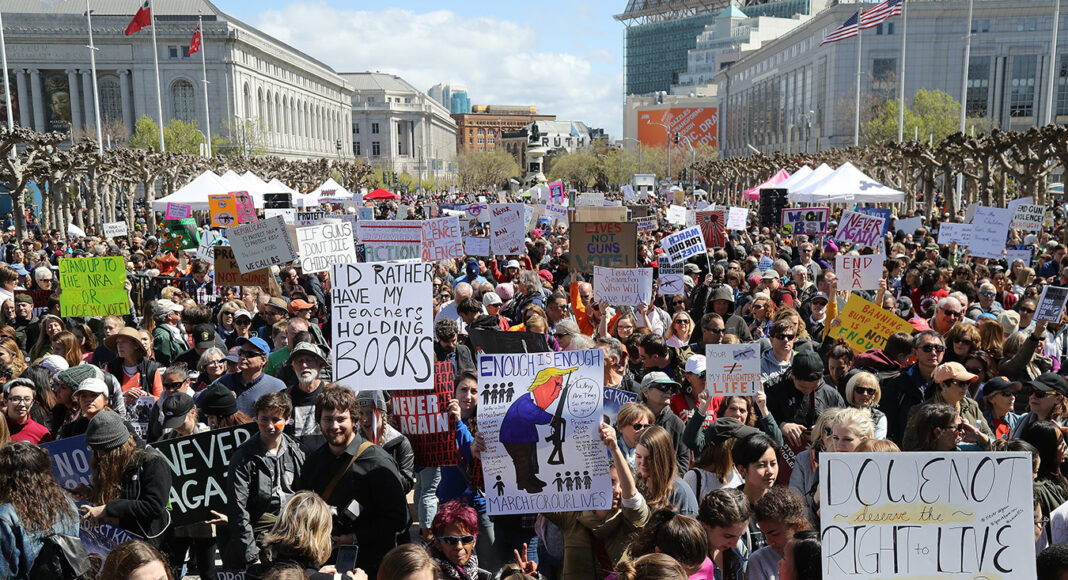By Soumya Karlamangla, The New York Times
(California Today)
The Supreme Court appears likely to rule against a New York law that imposes strict limits on who can carry guns in public, which could radically reshape the nation’s relationship with guns.
This is undoubtedly a big deal — the court’s first major Second Amendment case in more than decade — but you might be wondering what it has to do with California.
Well, California is one of a few states with concealed carry restrictions similar to New York’s. So the fate of our state’s law, which greatly limits the number of people here with weapons in public, hinges on the Supreme Court decision.
“If the New York law fails, then basically, automatically California’s law is also invalid,” Gabriel Chin, a law professor at the University of California, Davis, told me.
Such a change would probably lead to a major jump in the number of Californians able to carry guns in public, particularly in places where concealed carry permits are currently rare, such as the Bay Area, Los Angeles and San Diego.
How we got here
Since the early 1980s, states have been relaxing gun laws and making it easier for people to carry loaded weapons in public.
Most Americans now live in a state that either doesn’t require a permit to carry a concealed weapon or that grants one to anyone who meets basic criteria, such as passing a background check and being older than 21.
Between 1999 and 2016, the number of Americans with concealed carry permits skyrocketed to more than 14.5 million from 2.7 million.
But about seven states — home to a quarter of the U.S. population — have retained laws that make it tougher to obtain the permits.
In California and New York, for example, people who want to carry a weapon in public must show a specific reason they need a gun more than the average person, such as an ongoing threat to their safety. This “good cause” criteria gives officials discretion to deny concealed carry permits if they don’t think the applicant deserves one.
And that is what’s at issue in the Supreme Court case — whether New York’s limitations on who can obtain concealed carry permits violates the Second Amendment. The plaintiffs in the case received licenses to carry weapons for hunting but were denied permission to keep guns on them at all times because they couldn’t prove they had a special need for them.
Similar gun lawsuits have been taken up by lower courts in recent years, but the Supreme Court has declined to weigh in until now, following recent appointments of conservative justices.
“The question has to be, ‘Why did they do so now?’” Chin said. “And I think the answer is that now they’re confident about how it’s going to come out.”
How this could play out in California
Currently, about 120,000 Californians have concealed carry permits. But they’re heavily concentrated in San Bernardino, Shasta, Fresno, Orange, Sacramento and Kern counties.
That’s because law enforcement officials in each county determine who can receive a permit. In Fresno County, where more people are authorized to carry a weapon than anywhere else in the state, the sheriff sometimes carries the paper applications around and hands them out to encourage people to apply, according to The Fresno Bee.
By contrast, in San Francisco, there are only two active concealed carry permits in the whole city. And while Los Angeles County accounts for more than 25% of the state’s population, it’s home to less than half a percent of California’s concealed carry permits.
If the New York law (and therefore the California law) is found unconstitutional by the Supreme Court, the California Legislature is likely to try to find other ways to regulate guns, experts say. Intense political will here has led California to enact more gun control laws than any other state.
But still, without a “good cause” provision, California counties would in most cases be unable to deny concealed carry permits to people who want them.
“The fact that there are just a handful of permits in San Francisco County and Los Angeles County isn’t because of a lack of desire for concealed carry permits — it’s because of the restrictive policy,” Chin said. “I think there’s a high probability that in the near future we’re going to have a lot more permits.”
This article originally appeared in The New York Times.












